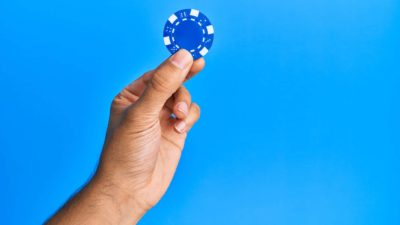No investor is immune to making a mistake. I've certainly had my fair share over the years. However, no other mistake is likely as expensive as my decision on DroneShield Ltd (ASX: DRO) shares — a miscalculation that cost my portfolio $29,612.
The counter-drone technology company is among the top gainers within the S&P/ASX All Ordinaries Index (ASX: XAO) for the past year's return.
While the benchmark is up 11%, Australia's only publicly listed drone defence pure-play is a mind-boggling 467% higher.
My $29,612 mistake on DroneShield shares
I nabbed 17,522 DroneShield shares in April 2020 for 11 cents apiece — an investment worth about $1,930 at the time. At the end of yesterday's session, the DroneShield share price stood at $1.83, nearly 17 times higher than my purchase price.
Shouldn't I be jumping for joy after buying DroneShield shares at 11 cents if they're now $1.83?
Yes, if I still owned them…
The problem is that I sold the lot — not for $1.00 per share, not even 50 cents. No, I sold out completely when the share price hit 14 cents, taking home a profit of $525.66 before tax. Don't spend it all at once, right…
I left $29,612 on the table by selling my DroneShield shares too soon.
Why did I sell? In short, the temptation of a quick gain. I knew DroneShield was a speculative investment at the time. So when the share price raced ahead 27% only a couple of months after initially investing, I thought a $525 profit in the hand sounded pretty good.
Unfortunately, this type of short-term thinking is precisely what prevents compounding. As Warren Buffett said, "If you aren't willing to own a stock for 10 years, don't even think about owning it for 10 minutes."
Greed can hurt in both directions
What's the lesson from my DroneShield shares mishap?
It shows that greed doesn't need a declining share price for it to be costly. Imagine the accumulative forgone gains among investors who sold Apple Inc. (NASDAQ: AAPL) before 2019 merely because the profits were too alluring to pass up.
Investing decisions should be rooted in rational assessments of a company's value. If you've done the legwork to conclude the business is worth $100 per share and it's valued at $20, an increase to $30 shouldn't prompt a sale.
Selecting good companies is half the battle as an investor. The other half is being rational and avoiding psychological traps.
So before cashing in any shares, ask yourself: Am I selling because it makes sense or because of greed?
You might just dodge a do-over of my $29,612 DroneShield shares mistake.









